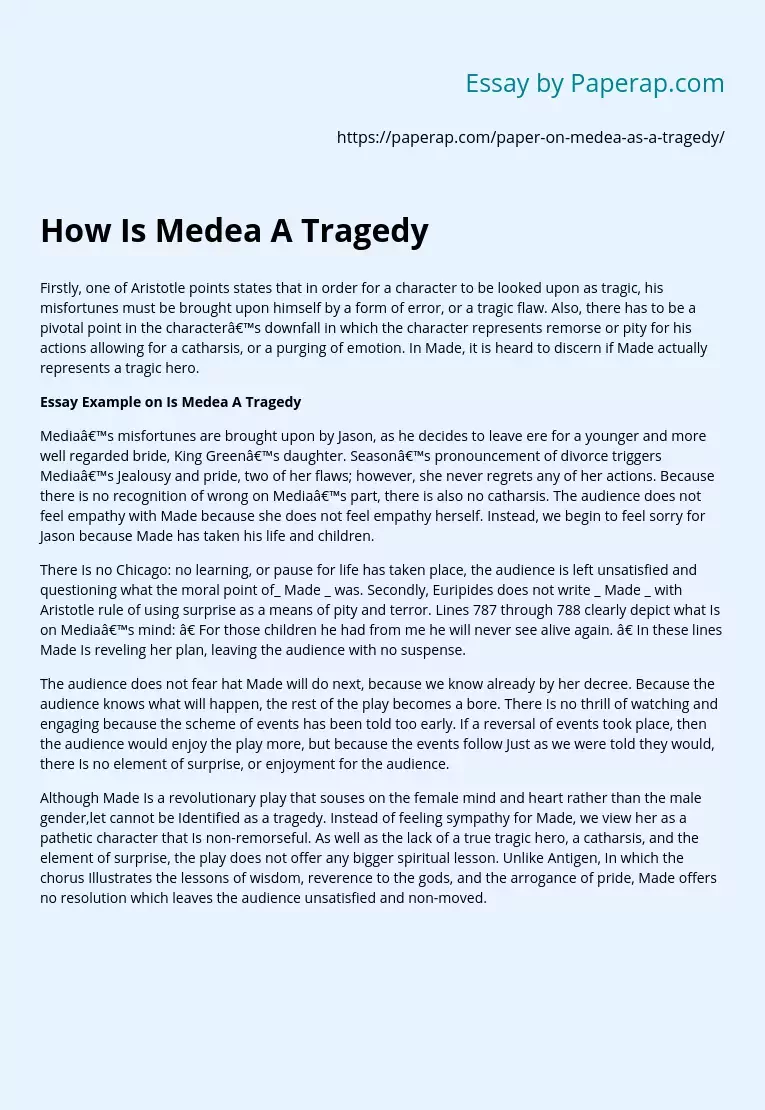How Is Medea A Tragedy
Firstly, one of Aristotle points states that in order for a character to be looked upon as tragic, his misfortunes must be brought upon himself by a form of error, or a tragic flaw. Also, there has to be a pivotal point in the character’s downfall in which the character represents remorse or pity for his actions allowing for a catharsis, or a purging of emotion. In Made, it is heard to discern if Made actually represents a tragic hero.
Essay Example on Is Medea A Tragedy
Media’s misfortunes are brought upon by Jason, as he decides to leave ere for a younger and more well regarded bride, King Green’s daughter. Season’s pronouncement of divorce triggers Media’s Jealousy and pride, two of her flaws; however, she never regrets any of her actions. Because there is no recognition of wrong on Media’s part, there is also no catharsis. The audience does not feel empathy with Made because she does not feel empathy herself.
Instead, we begin to feel sorry for Jason because Made has taken his life and children.
There Is no Chicago: no learning, or pause for life has taken place, the audience is left unsatisfied and questioning what the moral point of_ Made _ was. Secondly, Euripides does not write _ Made _ with Aristotle rule of using surprise as a means of pity and terror. Lines 787 through 788 clearly depict what Is on Media’s mind: ” For those children he had from me he will never see alive again.
” In these lines Made Is reveling her plan, leaving the audience with no suspense.
The audience does not fear hat Made will do next, because we know already by her decree. Because the audience knows what will happen, the rest of the play becomes a bore. There Is no thrill of watching and engaging because the scheme of events has been told too early. If a reversal of events took place, then the audience would enjoy the play more, but because the events follow Just as we were told they would, there Is no element of surprise, or enjoyment for the audience.
Although Made Is a revolutionary play that souses on the female mind and heart rather than the male gender,let cannot be Identified as a tragedy. Instead of feeling sympathy for Made, we view her as a pathetic character that Is non-remorseful. As well as the lack of a true tragic hero, a catharsis, and the element of surprise, the play does not offer any bigger spiritual lesson. Unlike Antigen, In which the chorus Illustrates the lessons of wisdom, reverence to the gods, and the arrogance of pride, Made offers no resolution which leaves the audience unsatisfied and non-moved.
How Is Medea A Tragedy. (2019, Nov 27). Retrieved from https://paperap.com/paper-on-medea-as-a-tragedy/

